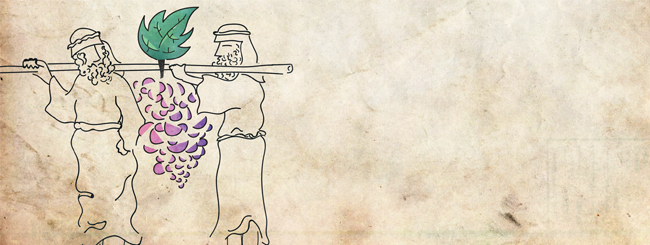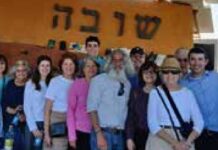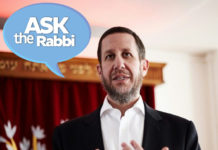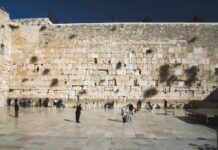
BY Rabbi Aryeh zev Saunders
In chapter 13 verse 16 Moshe changes Joshua’s name from Hoshea to Yehoshua by adding an extra letter, Vav. Rashi explains that Moshe wanted to change Joshua’s name in order to imply that G-d should save him from the advice of the spies. This is achieved by his name now being made up of two words: “Yeho,” meaning G-d, and “Shua,” meaning save.
Why didn’t Moshe pray for Calev, who also did not follow the spies’ advice?
The Rabbis tell us that Calev went to pray at the graves of the Patriarchs so that he should not be affected by the spies’ evil intentions.
Question 1:
Why didn’t Joshua go to pray with Calev?
Answer
There are two approaches to avoid being influenced by evil people.
1. Fight against them, argue with their approach and try to change their views.
2. Pretend that you agree so they don’t try to change you, but you secretly disagree and don’t follow them.
Each approach has it pros and cons.
Approach 1 is dangerous because people could persuade you with logic and eventually wear you down.
Approach 2 is dangerous because you might be guilt-tripped into following their plans.
Different people are better at adopting either of these approaches.
Joshua adopted approach 1. He fought against the spies’ ideals. Calev adopted approach 2. This can be proven by the way he tried to quieten the Jewish people by making them feel he was going to speak ill of Moshe, and when he got their attention he told them the opposite of what they were expecting (c 13 v 30).
Therefore, Joshua, who was outgoing, needed Moshe Rabbeinu’s public prayers to help him avoid being influenced. He needed constant help and reminders by having it in his name.
Calev was privately disagreeing with them. He only needed private guarding by going to the graves of the Patriarchs.
Question 2:
Why were the spies punished for their report? Why were they regarded as so terrible when they appeared to tell the truth?
The fruit was indeed big,
Amalek was indeed living there,
The people were naturally strong and lived in fortified cities,
There were giants in the land.
They told the truth. What was the problem?
Answer
The Ramban (Nachmanides) explains that it was the word “efes” (ch 13 v 28) meaning “but” or “however,” which was the problem. If they had just told the truth they would have been fine. However, they added their own preposition. It is as if they were trying to overplay the downside of going to Israel. They added their own perspective on what they saw.
This teaches us the power of tone of voice and how we express ourselves. It is not just what we say, it is also how we say it. A different tone of voice can change the whole reflection on things.
This is also true in the laws of lashon harah. Two people can make the same statement, but with one way it’s forbidden and the other is permitted.
For example, let’s say a visitor asks you where he can get a free meal. You answer them, “Go to Cohen’s house; they are always cooking over there.” This seems harmless and fine.
However, if you said it in a derogatory voice, that would be lashon harah as you are implying that it’s a bad thing they are always cooking for no reason.
We should heed this warning and be careful with our speech and tone of voice and together we can make a nation that G-d will be proud of to call His “chosen” people.






















